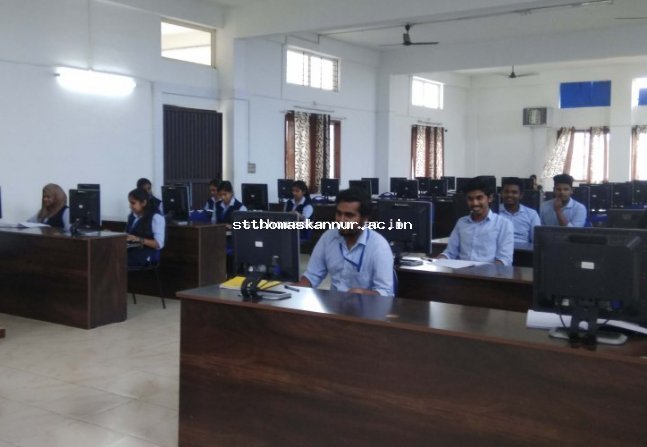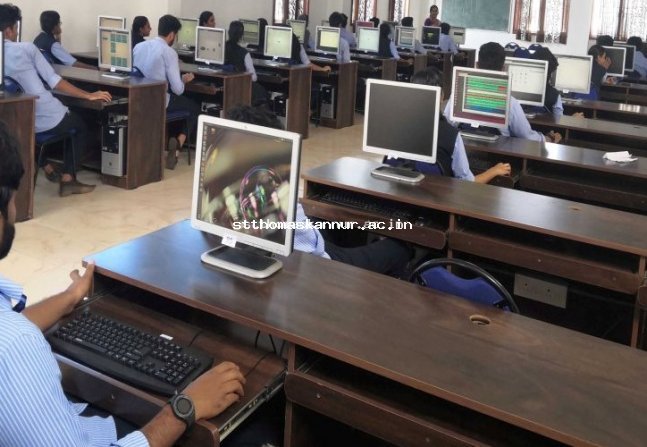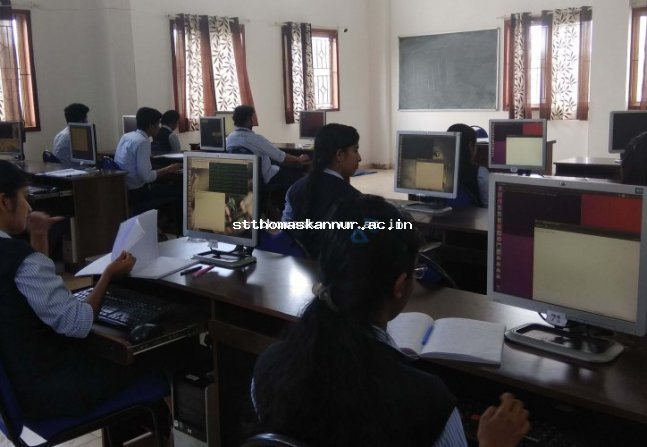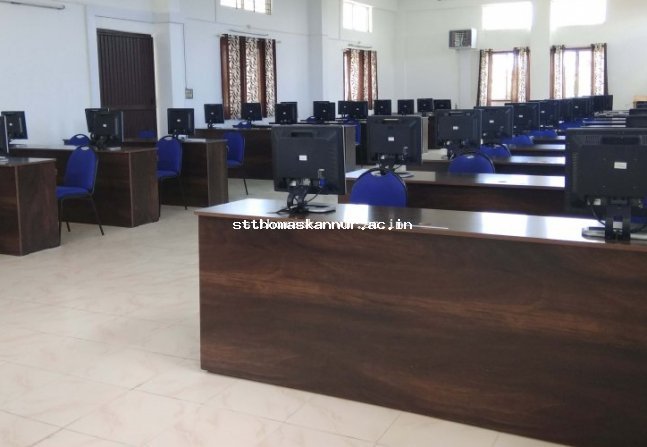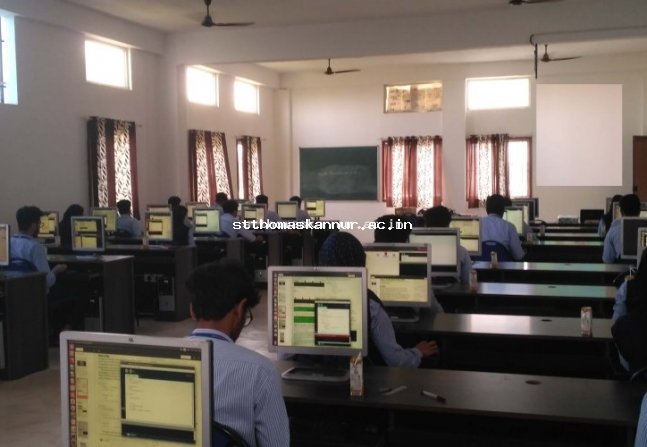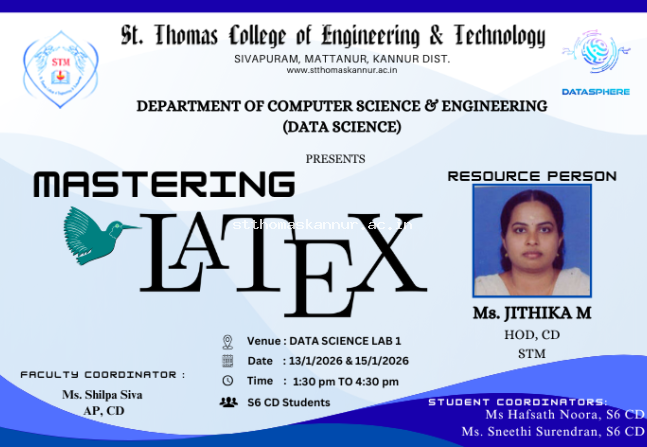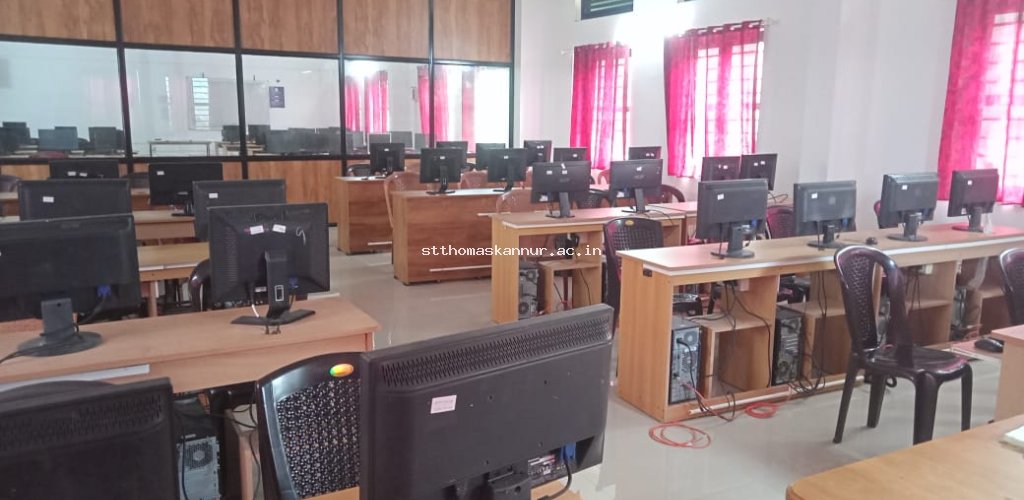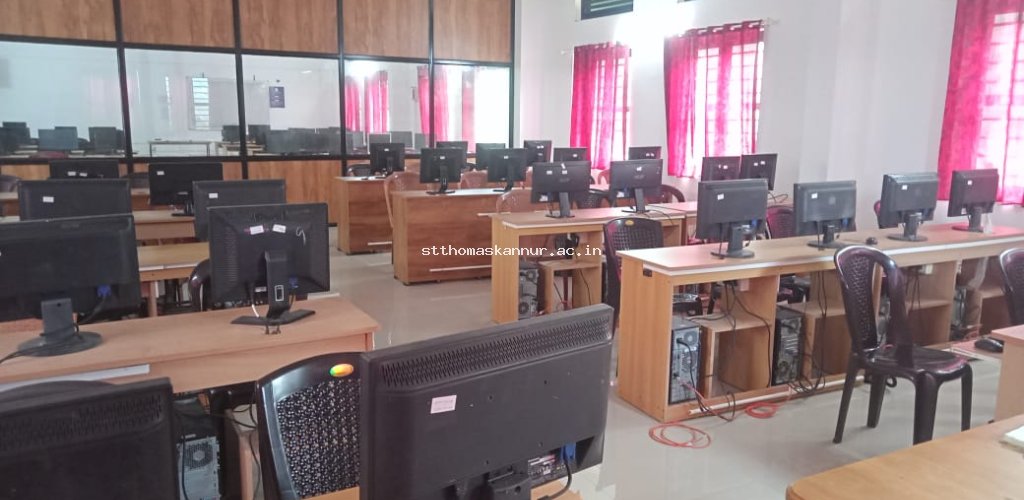The program in the field of Computer Science is a never ending process. The Computer Science Department is designed to keep up to this pace. Realizing the importance of rapid advancement in the information technology sector, all the labs are equipped with the network structure and are updated and upgraded as per the requirement and demand of industries.
VISION
To mold students into globally competent data science graduates and give environmental
capacity to contribute in the field of computer science by providing solutions in societal aspects.MISSION
M1: To develop professionals proficient in the area of Data Science.
M2: To apply the knowledge of data science in different fields, professions, and sectors.
M3: To furnish professionals with high ethical values and ability to solve real-life problems.PROGRAM EDUCATIONAL OBJECTIVES (PEOs)
PEO1: The graduates will be able to succeed in their profession, by combining research and
entrepreneurial skills with communication, teamwork, and leadership skills.
PEO2: The graduates will be able to design and develop solutions using modern engineering
tools and techniques to solve real-life problems.
PEO3: The graduates will have the ability to adapt to emerging technological changes with life
long learning skills.PROGRAM SPECIFIC OUTCOMES (PSOs)
PSO1: Our graduates can apply the concepts and practical knowledge of data science in analysis,
design and development of computing systems.PSO2: Our graduates can apply the knowledge of data analytics and statistics to solve
environmental and social issues with ethics and manage different projects.
Program Outcomes (PO)
Engineering Graduates will be able to:
PO1 Engineering knowledge: Apply the knowledge of mathematics, science, engineering fundamentals, and an engineering specialization to the solution of complex engineering problems.PO2 Problem analysis: Identify, formulate, review research literature, and analyze complex engineering problems reaching substantiated conclusions using first principles of mathematics, natural sciences, and engineering sciences.
PO3 Design/development of solutions: Design solutions for complex engineering problems and design system components or processes that meet the specified needs with appropriate consideration for the public health and safety, and the cultural, societal, and environmental considerations.
PO4 Conduct investigations of complex problems: Use research-based knowledge and research methods including design of experiments, analysis and interpretation of data, and synthesis of the information to provide valid conclusions.
PO5 Modern tool usage: Create, select, and apply appropriate techniques, resources, and modern engineering and IT tools including prediction and modeling to complex engineering activities with an understanding of the limitations.
PO6 The engineer and society: Apply reasoning informed by the contextual knowledge to assess societal, health, safety, legal and cultural issues and the consequent responsibilities relevant to the professional engineering practice.
PO7 Environment and sustainability: Understand the impact of the professional engineering solutions in societal and environmental contexts, and demonstrate the knowledge of, and need for sustainable development.
PO8 Ethics: Apply ethical principles and commit to professional ethics and responsibilities and norms of the engineering practice.
PO9 Individual and team work: Function effectively as an individual, and as a member or leader in diverse teams, and in multidisciplinary settings.
PO10 Communication: Communicate effectively on complex engineering activities with the engineering community and with society at large, such as, being able to comprehend and write effective reports and design documentation, make effective presentations, and give and receive clear instructions.
PO11 Project management and finance: Demonstrate knowledge and understanding of the engineering and management principles and apply these to one�s own work, as a member and leader in a team, to manage projects and in multidisciplinary environments.
PO12 Life-long learning: Recognize the need for, and have the preparation and ability to engage in independent and life-long learning in the broadest context of technological change.
PROGRAM ASSESSMENT COMMITTEE
Ms. Jithika M (HOD CD Dept) - Chairperson
Ms. Anjana K P (Assistant Professor CD Dept) - Program Coordinator
Ms. Neethu T Regi (Assistant Professor CD Dept) - DQAC Coordinator/Faculty Advisor
Ms. Sneha T (Assistant Professor CD Dept) - Senior Faculty Member
Ms. Shilpa Shiva (Assistant Professor CD Dept) - Faculty Advisor
Mr. Sruthin Moorkoth - Student Representative

